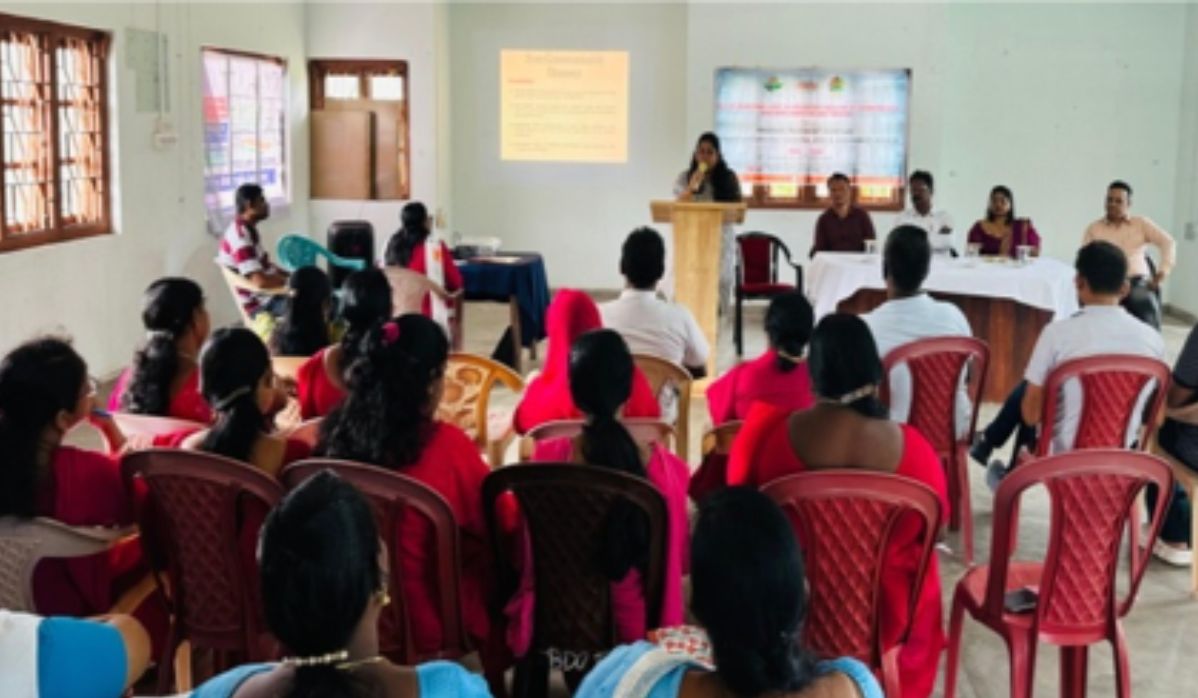Tarun Karthick
Sri Vijaya Puram, 19 October 2024
Little Andaman’s Community Development (CD) Block recently organised a Block-Level Training Program titled “Role of Gram Panchayat in Preventive Measures of Communicable and Non-Communicable Diseases.” The initiative, part of the ‘Rashtriya Gram Swaraj Abhiyan’ (RGSA), aimed to equip local community leaders and health workers with the knowledge and tools to tackle prevalent health issues in the region.
The event was inaugurated by the chief guest, Mr. S. Paramanathan, Pramukh of Panchayat Samiti, in the presence of other dignitaries including Mr. Belthazer, Block Development Officer, and Dr. Vishal Mandal, Extension Officer. Also in attendance were health experts Dr. Namita Gopal and Ms. C. Vijya, who contributed significantly to the discussions on health, sanitation, and women’s empowerment.
Dr. Namita Gopal delivered a detailed presentation on communicable and non-communicable diseases, highlighting their impact on communities and the crucial role of preventive measures. She emphasized that non-communicable diseases (NCDs) are a rising global health threat, but with early detection and prevention efforts, many lives could be saved. Dr. Gopal underlined the important role Gram Panchayats can play in raising awareness and implementing health initiatives within their communities.
Adding to the discussions, Dr. Samresh Dey from Primary Health Centre (PHC) Hutbay, spoke about the significance of community participation in health initiatives. He elaborated on the health benefits of practices like yoga and meditation and shared practical strategies for disease prevention, including the importance of sanitation, nutrition, and regular health check-ups.
Key stakeholders from Little Andaman, including the Pradhan, Panchayat Secretary, Mukhiya Sevika, Auxiliary Nurse Midwives (ANMs), ASHA workers, and Anganwadi workers, participated in the training program. The event reinforced a collaborative, community-led approach to addressing health challenges at the grassroots level.
The primary objective of the training program was to empower local leaders and health workers with the skills and knowledge required to combat the spread of communicable and non-communicable diseases. By actively involving key community members, the initiative also aimed to achieve the Local Sustainable Development Goal (LSDG) target of creating a ‘Healthy Panchayat.’

